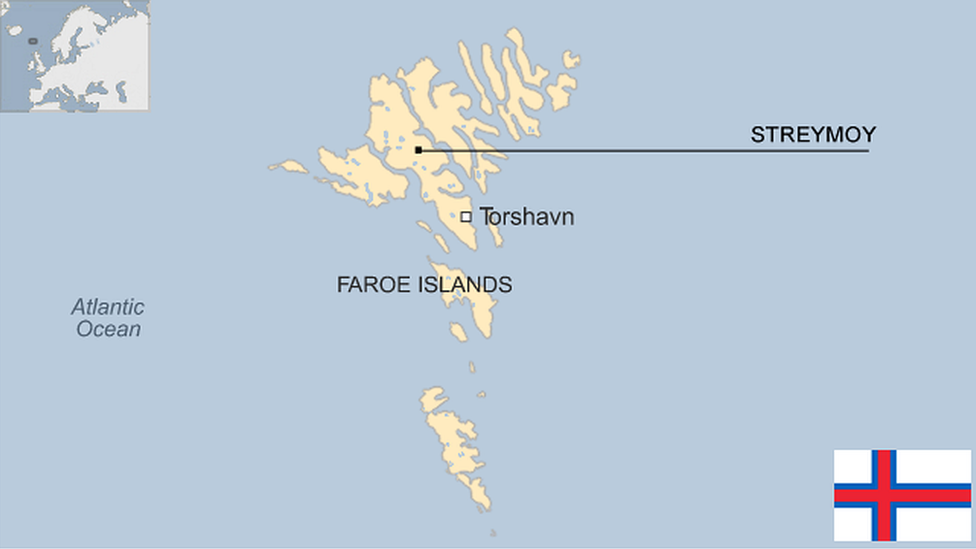Herring trade sanctions begin against Faroe Islands
- Published
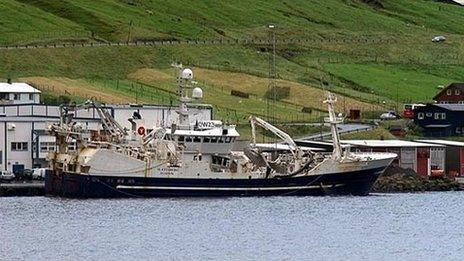
Slaettaberg is one of only 10 boats which make up the Faroese pelagic fleet
EU trade sanctions against the Faroe Islands have now been introduced because of an international dispute over who has the right to fish herring.
Tensions have been growing since the small North Atlantic country trebled its previous share of the catch.
The sanctions mean European countries are banned from importing herring landed by the Faroese.
In the Faroese capital Torshavn there are boats everywhere - rowing boats, cruisers, yachts and even a tall ship.
But, strangely, no herring boats.
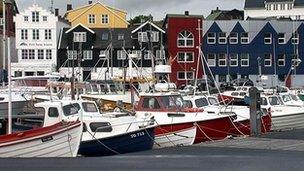
Torshavn, the Faroese capital, is home to boats of many varieties
And yet Government House, which overlooks the waters, has become embroiled in a big fight because of them.
Further round the coast is the small community of Kollafjordur where a large boat, the Slaettaberg, is unloading its catch of herring.
She is one of only 10 boats which make up this country's pelagic fleet, compared with 29 in the UK.
Bogi Jacobsen, a Faroese skipper, told me his government is right to take on Europe.
"We know that the EU are fishing a lot more than the quota is," he said.
"They are allowed to throw fish out, not taken off the quota so the fact is this is not about sustainability, as stated by the EU.
"This is about who has the right to fish, who has the right to the quota."
The Faroe Islands has a population of just 50,000, and until 2012 their share of all the herring available was 5%.
But this year, without agreement, they decided to land 17%.
Prime Minister Kaj Leo Johannesen told me they were right to catch more.
He said: "The mackerel and the herring is in huge quantities much more into our area and that is what we are reacting on, that we own a bigger part of this stock."
He told me the migration patterns of herring are changing, that they are eating more food in Faroese waters and that that is damaging other stocks.
'Negotiated solution'
So punishing the Faroes for wanting more, he believes, is wrong.
"It's not the guy who is fishing 5% who is destroying the stock, it is the guy who is fishing 95%.
"But we hope we will have a negotiated solution."
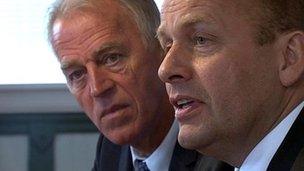
Faroese PM Kaj Leo Johannesen (right) was visited by Danish Foreign Secretary Villy Sovndal
In town is the Foreign Secretary of Denmark, Villy Sovndal, here to show his support to a nation which is part of the Danish kingdom.
But as an EU member, his country is in an awkward position.
The Danes have no plans to defy the European ruling but the dispute has been referred to the United Nations Convention on the Law of the Seas.
Asked what the UN convention should decide he said: "I am not the judge, I leave it to the judges to take that decision."
But challenged that his response did not sound like a wholehearted support he repeated: "No, I just say I am not the judge, it is not Denmark that is going to decide this matter."
Scotland's fishermen, where the UK's pelagic fleet is largely based, have welcomed the introduction of sanctions and describe what the Faroese are doing as an "astonishing act of irresponsibility".
Increasing markets
Iceland, also failing to reach agreed settlements with the other coastal states, says: "The extreme action is not the way to solve a disagreement between friendly countries.
"While we do not condone the Faroe Islands' approach to managing its herring quotas, we object on the strongest possible terms to the EU's coercive measures."
Nobody will admit how much the sanctions will hurt the Faroe Islands, instead saying they have increasing markets in Russia, the Far East and Africa.
But they will be back around the negotiating table in London next month.
- Published20 August 2013
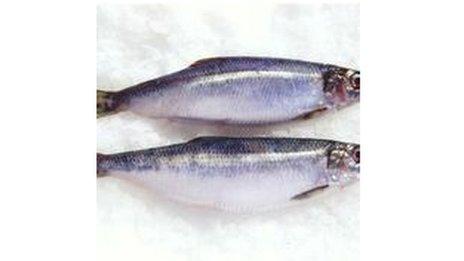
- Published17 August 2013

- Published31 July 2013

- Published26 July 2013

- Published12 February 2013
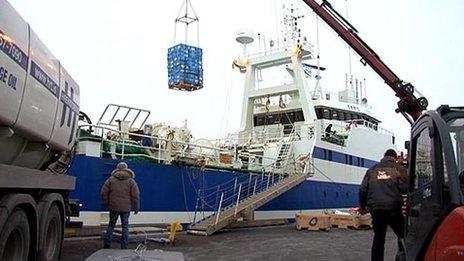
- Published11 February
